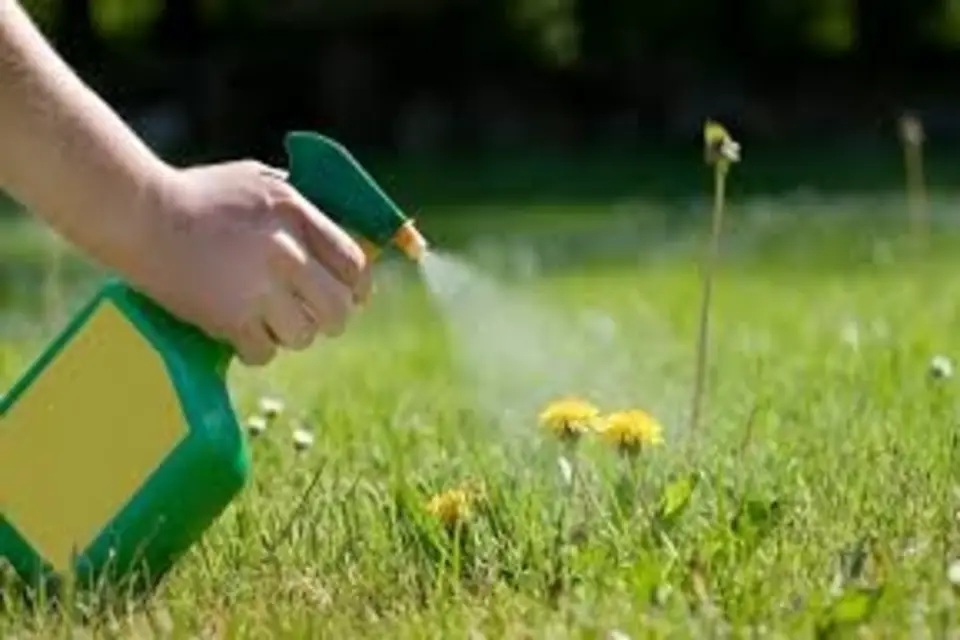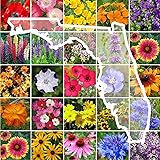Every gardener will agree that weeds are a major nuisance. But the challenge lies in finding the right method of getting rid of them. What one gardener recommends as a solution to this problem is different from 10 others. This means that there are many alternatives to pick when deciding on which to choose. From commercial weed killers to home remedies, the list keeps growing.
Ammonia is among the top choices of weed-killing methods. If smell could kill anything, then Ammonia’s irritating and robust odor is capable of killing any living thing. As strong as the odor, Ammonia, in its variance, is a natural substance effective in weed and grass killing. Moreover, it is an active ingredient used in making weed and grass killers.
If just traces of Ammonia in dog urine could cause discolored patches in your yard, what would be the effect of raw Ammonia’s concentration on the weeds?
Read on for a detailed article on Ammonia as an herbicide.
Does Ammonia Kill Weeds?
Unlike other weed killers, Ammonia is a non-selective weed killer. This means that it will not only kill weeds but everything it touches. If the weeds are growing among other desired plants and grass, opt for a different weed-killing method because Ammonia will destroy everything.
It is slow but sure in results. Most weed killing methods attack the top growth alone, but Ammonia kills the entire weed from the roots to the upper part. Once the plant absorbs Ammonia, it starts attacking the cells and slowly eats the plant to death. This leads to rapid dehydration, causing the top growth of the weed to wilt and die.
To make sure no regrowth occurs, spray the Ammonia even to the soil around the pesky plants. The ground will take in the Ammonia directly into the roots of the plant. If the roots are dead, the regrowth will not occur; hence the weeds are permanently eliminated.
How to Use Ammonia to Kill Weeds
Have you made up your mind on using Ammonia to kill your weeds? Since it is highly toxic to the soil, humans and animals follow the below steps for significant results and safety precautions.
- Dilute the Ammonia by mixing one-third part water with two-thirds parts ammonia.
- Pour the mixture into a spray bottle.
- Spot test a small weeded area in the garden by spraying the ammonia solution directly onto the weeds.
- If the results are impressive, spray the whole weeded area with the Ammonia solution.
- Repeat the process if necessary until all the weeds die.
Tip: Always use protective gear when handling chemicals such as Ammonia as they are highly toxic. Clean the equipment thoroughly after use before storage.
Which Weeds Does Ammonia Kill?
Have you seen any intrusive weed growing in your yard, driveways, or garden? Worry not as a non-selective weed killer; Ammonia is your favorable solution. In cases of;
Crabgrass (Digitaria): As an annual weed, crabgrass spreads by millions of seeds. Removal by hands is ideal but tiresome. Therefore, use Ammonia to kill crabgrass from the roots to top growth. Spray Ammonia during spring when the plant is fragile and be sure not to see it ever again. After that, give the area sometime before replanting as you treat using an organic fertilizer.
Dandelions (Leontodon taraxacum): Dandelions are perennial weeds and an indication of spring. Their bright yellow flowers often appear between cracks in sidewalks and driveways, making it impossible to pull by hand. In such areas, weeds are a complete turn-off; hence a permanent solution is suitable. Spraying Ammonia will kill the dandelions from the roots,
Common Ragweed (Ambrosia artemisiifolia): As an allergy sufferer, Common Ragweed should be an essential weed for you to recognize. You would often prefer having weeds in your yard for aesthetic reasons, but the Common Ragweed requires prompt removal. Since it is a significant source of hay fever, Ammonia comes in handy. For complete eradication of the Common Ragweed, spraying Ammonia is the best method with substantial results.
Hedge Bindweed (Convolvulus arvensis): Do not let the Hedge bindweed’s attractive blooms and pleasant scent charm you. On the contrary, it is not as safe as it appears because it will take over your entire yard quickly when it is out of control. But all hope is not lost with Ammonia by your side. A solution of Ammonia will break the growth pattern and kill the weed completely from your lawn.
Ground Ivy (Glechoma hederaceae): Ground Ivy or Creeping Charlie is a common lawn weed. With pretty tiny flowers and a minty aroma, this weed is also essential as a medicinal herb. Sorry to burst your bubble as this weed can be annoying and hard to kill as it keeps ‘creeping’ back alive. If you detect it as a nuisance and have tried several methods of killing it with no success, opt for Ammonia. The useful Ammonia will do a clean and impressive job in eliminating the Ground Ivy once and for all.
Stinging Nettle (Urtica dioica): If you happen to brush yourself against the barbs, then you will understand the name. Though the flowers of stinging nettle are low-key, you cannot avoid the rash that comes after the spikes on the leaves come in contact with your skin. It’s a source of food as the leaves are very nutritious when you cook them well. You don’t want this weed growing all over your yard; therefore, you can use Ammonia to remove it altogether.
Does Ammonia Kill Grass?
Everybody loves grass growing on their lawns and yard. A well-manicured grass makes the grounds of every home attractive. But when grass grows in unwanted areas like a garden or driveways and sidewalks, it acts as a weed. The sight of grass in between cracks is hideous and requires immediate removal.
Killing grass, however, can be as challenging as killing weeds. Most times, the grass will bounce back and regrow on unwanted areas, thus posing a challenge. It is for this reason that gardeners and homeowners opt for permanent grass killing solutions.
With lots of options available in the market, others meet the homeowners’ expectations while others don’t. As a sure bet with no disappointments, Ammonia is an ideal solution. Ammonia is not only a weed killer but a grass killer as well since it’s non-selective. It gets rid of everything in its way and, in this case, grass. Go ahead; get rid of that annoying grass!
What Kills Weeds Permanently Naturally?
Regarding the time, money, and effort one puts in a garden or lawn; you wouldn’t want to use a weed killer that destroys it. For this reason, natural weed killers are the best solution for getting rid of the weeds completely. If properly applied, the results are quite impressive. Such weed killers are;
Newspaper: Used for smother the sunlight from reaching the weeds. Sunlight is necessary for plant growth, so if you block it, the plant will wilt and die.
Corn Gluten Meal: This corn by-product inhibits seeds from growing into weeds. Because the meal will stop germination, spread it around established plants. After harvest, spread the feed to prevent late-maturing weeds.
Vinegar: The acetic acid present in vinegar sucks the life out of plants. When using vinegar, cover the desired plants so as not to kill them as well.
Boiling Water: Boiling water is not only for your favorite cup of tea but for killing weeds as well. Boiling water is ideal for weeds growing in driveways and sidewalks. The water will cool off before it reaches desirable border plants.
Hand removal: this is an ideal method that can act as a family activity in a large weeded area. Pulling by hand is significant since it gets rid of the weeds from the roots. However, be cautious when dumping the weeds to spread the seeds to other areas to cause regrowth.
Parting Shot
So does ammonia kill weeds and can you use it for your lawn? Ammonia is an effective weed killer but damages the soil and environment if you use it excessively. Too much of something is always poisonous!
On the flipside, Ammonia is a significant source of nitrogen for plants. It is present in air, soil, and water. Nitrogen stimulates plant growth and develops seed and fruit production, causing healthier produce. It’s also vital for photosynthesis.





